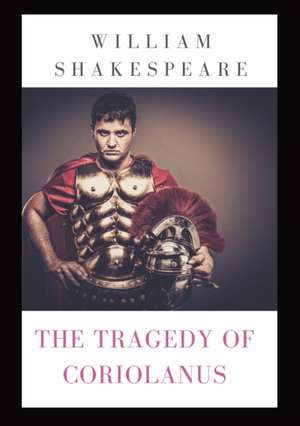Les Révoltés de la Bounty: Les classiques de la littérature
Autor Jules Vernefr Limba Franceză Paperback – 19 sep 2022
Din seria Les classiques de la littérature
-
 Preț: 108.75 lei
Preț: 108.75 lei -
 Preț: 108.17 lei
Preț: 108.17 lei -
 Preț: 106.94 lei
Preț: 106.94 lei -
 Preț: 108.34 lei
Preț: 108.34 lei -
 Preț: 104.67 lei
Preț: 104.67 lei -
 Preț: 114.30 lei
Preț: 114.30 lei -
 Preț: 107.13 lei
Preț: 107.13 lei -
 Preț: 105.25 lei
Preț: 105.25 lei -
 Preț: 121.16 lei
Preț: 121.16 lei -
 Preț: 102.80 lei
Preț: 102.80 lei -
 Preț: 183.86 lei
Preț: 183.86 lei -
 Preț: 116.97 lei
Preț: 116.97 lei -
 Preț: 120.06 lei
Preț: 120.06 lei -
 Preț: 124.44 lei
Preț: 124.44 lei -
 Preț: 156.08 lei
Preț: 156.08 lei -
 Preț: 320.08 lei
Preț: 320.08 lei -
 Preț: 126.92 lei
Preț: 126.92 lei -
 Preț: 92.84 lei
Preț: 92.84 lei -
 Preț: 226.52 lei
Preț: 226.52 lei - 5%
 Preț: 35.99 lei
Preț: 35.99 lei -
 Preț: 176.56 lei
Preț: 176.56 lei -
 Preț: 119.03 lei
Preț: 119.03 lei -
 Preț: 121.00 lei
Preț: 121.00 lei -
 Preț: 124.20 lei
Preț: 124.20 lei -
 Preț: 141.69 lei
Preț: 141.69 lei -
 Preț: 247.22 lei
Preț: 247.22 lei -
 Preț: 100.68 lei
Preț: 100.68 lei -
 Preț: 218.37 lei
Preț: 218.37 lei -
 Preț: 90.74 lei
Preț: 90.74 lei -
 Preț: 160.49 lei
Preț: 160.49 lei -
 Preț: 128.11 lei
Preț: 128.11 lei -
 Preț: 90.65 lei
Preț: 90.65 lei -
 Preț: 105.91 lei
Preț: 105.91 lei -
 Preț: 128.60 lei
Preț: 128.60 lei -
 Preț: 165.57 lei
Preț: 165.57 lei -
 Preț: 120.52 lei
Preț: 120.52 lei -
 Preț: 103.96 lei
Preț: 103.96 lei -
 Preț: 106.72 lei
Preț: 106.72 lei -
 Preț: 114.75 lei
Preț: 114.75 lei -
 Preț: 125.43 lei
Preț: 125.43 lei -
 Preț: 58.67 lei
Preț: 58.67 lei -
 Preț: 292.56 lei
Preț: 292.56 lei -
 Preț: 41.06 lei
Preț: 41.06 lei -
 Preț: 191.29 lei
Preț: 191.29 lei
Preț: 112.72 lei
Nou
Puncte Express: 169
Preț estimativ în valută:
21.57€ • 22.58$ • 17.95£
21.57€ • 22.58$ • 17.95£
Carte disponibilă
Livrare economică 10-24 martie
Preluare comenzi: 021 569.72.76
Specificații
ISBN-13: 9782382746769
ISBN-10: 2382746769
Pagini: 24
Dimensiuni: 148 x 210 x 2 mm
Greutate: 0.26 kg
Editura: Culturea
Colecția Les classiques de la littérature
Seria Les classiques de la littérature
ISBN-10: 2382746769
Pagini: 24
Dimensiuni: 148 x 210 x 2 mm
Greutate: 0.26 kg
Editura: Culturea
Colecția Les classiques de la littérature
Seria Les classiques de la littérature
Notă biografică
A Midsummer Night's Dream is a comedy written by William Shakespeare in 1595/96. It portrays the events surrounding the marriage of Theseus, the Duke of Athens, to Hippolyta, the former queen of the Amazons. These include the adventures of four young Athenian lovers and a group of six amateur actors (the mechanicals) who are controlled and manipulated by the fairies who inhabit the forest in which most of the play is set.The play is one of Shakespeare's most popular works for the stage and is widely performed across the world. It is unknown exactly when A Midsummer Night's Dream was written or first performed, but on the basis of topical references and an allusion to Edmund Spenser's Epithalamion, it is usually dated 1595 or early 1596. Some have theorised that the play might have been written for an aristocratic wedding (for example that of Elizabeth Carey, Lady Berkeley), while others suggest that it was written for the Queen to celebrate the feast day of St. John, but no evidence exists to support this theory. In any case, it would have been performed at The Theatre and, later, The Globe. Though it is not a translation or adaptation of an earlier work, various sources such as Ovid's Metamorphoses and Chaucer's "The Knight's Tale" served as inspiration. According to John Twyning, the play's plot of four lovers undergoing a trial in the woods was intended as a "riff" on Der Busant, a Middle High German poem. According to Dorothea Kehler, the writing period can be placed between 1594 and 1596, which means that Shakespeare had probably already completed Romeo and Juliet and had yet to start working on The Merchant of Venice. The play belongs to the early-middle period of the author, when Shakespeare devoted his attention to the lyricism of his works.
